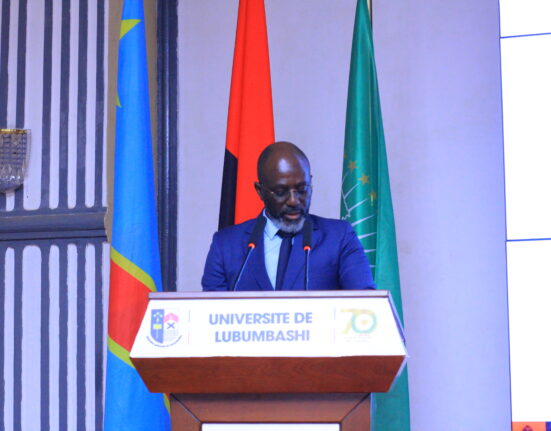A Political, Economic, Social analysis of oil dependency and the country’s path toward a new economic future | Abuja | July 2025
Nigeria remains one of Africa’s top oil producers, exporting over 1.4 million barrels of crude oil daily. Yet, what was once hailed as the country’s ticket to economic advancement has, for many, become a trap. As the global push toward energy transition accelerates and domestic pressures mount, the question persists: is oil still Nigeria’s future?

AfricaHeadline Reports Team
editorial@africaheadline.com
This special report presents a analysis, Political, Economic, Social, offering insight into the structural impacts of oil dependency and exploring potential development paths for Africa’s most populous nation.
In Nigeria, oil is more than a natural resource, it is a pillar of political control, a source of conflict, and a lifeline for elites. The state-run Nigerian National Petroleum Company Limited (NNPCL) remains at the centre of the industry, but allegations of corruption and patronage have long plagued its operations.
The Niger Delta, the core oil-producing region, continues to suffer from environmental degradation, armed militias, and community unrest. Although the Petroleum Industry Act (PIA), passed in 2021, was intended to promote transparency and equity, many local leaders argue that the benefits still fail to reach the people on the ground.
Internationally, Nigeria is caught in a dilemma: maintain oil revenues to stabilise the budget, or reduce emissions to meet global climate commitments.
Oil accounts for over 90% of Nigeria’s export earnings and nearly 60% of government revenues, yet contributes just 6.3% to GDP, according to the IMF. This disparity highlights the country’s failure to diversify.
The IMF projects Nigeria’s economy will grow by 3.2% in 2025, driven by energy reforms, increased domestic refining, and improved fiscal discipline. Meanwhile, the World Bank forecasts inflation to decline to 18% by the end of 2025, after peaking above 24% in 2024.
The newly operational Dangote refinery, with a capacity of 650,000 barrels per day, is expected to reduce fuel imports, generate over 135,000 jobs, and improve the balance of payments. The African Development Bank (AfDB) estimates it could add 1.2% to Nigeria’s GDP by 2027.
However, concerns persist. Market volatility, geopolitical tensions, and insecurity in the Gulf of Guinea continue to pose risks to Nigeria’s fiscal health.
Nigeria exemplifies the paradox of plenty. Despite immense oil wealth, more than 85 million Nigerians live in extreme poverty. Youth unemployment stands at over 33%, and access to basic services remains limited for large parts of the population.
Communities in the oil-rich Niger Delta face toxic water, infertile land, and high rates of respiratory illness due to gas flaring. In urban centres like Lagos and Abuja, fuel subsidy removals have driven up the cost of living and fuelled discontent among workers, students, and small businesses.
The AfDB has called for targeted social spending to redistribute oil revenues more equitably, prioritising technical education, rural healthcare, and housing in affected regions. Without such measures, the cycle of exclusion and instability is likely to persist.
Oil theft and pipeline vandalism cost Nigeria over 200,000 barrels a day. Despite ongoing efforts to deploy surveillance drones, satellite monitoring, and blockchain tracking systems, the losses remain high.
Local tech startups, such as OilData Solutions and NigerTech, are working to create smarter solutions for oil logistics and transparency. However, the sector still faces a critical skills gap, and the ongoing brain drain weakens domestic capacity.
The AfDB has committed $400 million between 2024 and 2027 to support digital innovation in Africa’s energy sector, with Nigeria as a key beneficiary. Nigeria also holds over 200 trillion cubic feet of proven natural gas reserves, positioning the country as a potential leader in gas-powered transition. But infrastructure remains underdeveloped.
According to the World Bank, Nigeria can achieve sustainable annual growth rates between 3.5% and 4% if it invests in clean energy, modern agriculture, and digital transformation. In the short term, macroeconomic stability, controlling inflation, strengthening the naira, and boosting local production, will be critical.
The IMF urges structural reforms, including fiscal transparency, anti-corruption enforcement, and decentralised economic development. The AfDB recommends establishing Special Economic Zones in inland states to attract non-oil investment and create jobs.
If implemented effectively, these strategies could reduce Nigeria’s dependence on crude oil to below 50% of exports by 2030, while increasing formal employment to above 60%.
Nigeria stands at a crossroads. Clinging to oil as the centre of its economy is increasingly unsustainable. Turning it into a bridge toward inclusive development will require political will, visionary leadership, and commitment to reform.
The days of easy oil wealth are over. For Nigeria to secure long-term prosperity, it must embrace a new model, one built on equity, innovation, and opportunity for all.
This transition will not be without resistance. Entrenched interests within the oil economy have benefited from opacity and weak regulatory enforcement. Dismantling these structures will require a coordinated institutional effort, supported by civil society and international partners. Transparency must become the norm, not the exception.
At the same time, building a diversified economy will demand heavy investment in infrastructure, human capital, and digital ecosystems. Agriculture and manufacturing, long neglected in favour of extractive sectors, must be revived with incentives, credit facilities, and export-driven strategies. The creative industries, already thriving in music and film, can also be key engines of growth if properly supported.
Climate resilience must become part of the economic planning. Rising sea levels, desertification in the north, and increasing floods in the south are real threats. Nigeria cannot afford to ignore the climate crisis while continuing to rely on fossil fuels. A green transition, with investments in solar, wind, and clean cooking technologies, offers both environmental and economic opportunities.
For the country’s vast youth population, estimated at over 120 million people under the age of 30, the urgency is even greater. Without jobs, education, and a stake in the economy, the risks of unrest, migration, and radicalisation will intensify. But with the right strategy, Nigeria’s youth could become the driving force behind a new era of innovation and sustainability.
The international community has a role to play, not just through aid, but through fair trade, debt restructuring, and investment in technology transfer.
Nigeria is not asking for handouts, but for a fair chance to turn its potential into real progress. The question is not whether Nigeria can succeed beyond oil, but whether it will be given the space, tools, and time to do so.








